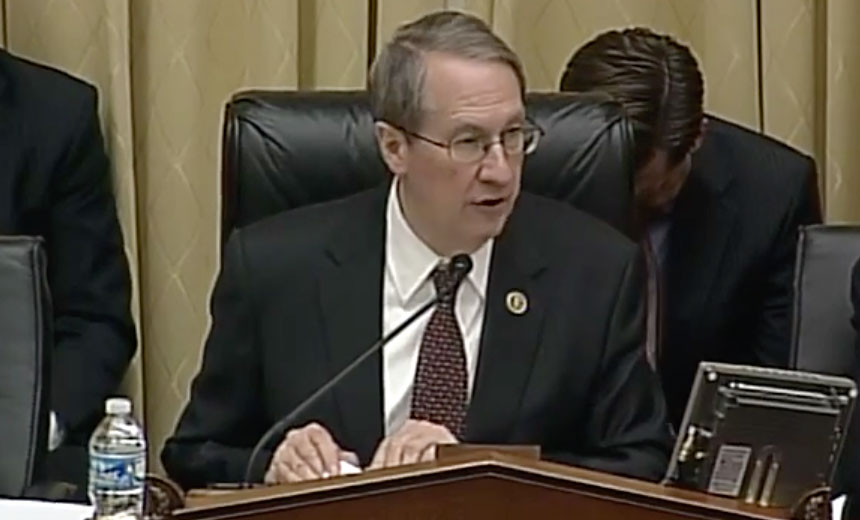 House Judiciary Committee Chairman Bob Goodlatte
House Judiciary Committee Chairman Bob GoodlatteThirty years ago, Congress enacted the Electronic Communications Privacy Act to prevent unauthorized government access to private electronic communications - decades before anyone ever heard of cloud computing. So the statute does not specify how law enforcement should gain access to email and text messages stored by third-party providers, including those offering cloud services. Now, Congress is taking a long-awaited step to address that issue.
See Also: The Inconvenient Truth About API Security
By a 28-0 vote, the House Judiciary Committee approved on April 13 the Email Privacy Act, which would require law enforcement to obtain a warrant before compelling third-party service providers to surrender their customers' email and text content. Next stop for the legislation that's also known as HR 699: the House of Representatives. The House will take up the measure during the last week of April, House Majority Leader Kevin McCarthy, R-Calif., tells The Hill.
The Email Privacy Act would establish for the first time a requirement that police obtain a warrant to retrieve stored communication content for criminal investigations, regardless of the type of service provider, the age of an email or text message or whether the message had been opened.
Embodying Fourth Amendment Principles
"The core of HR 699 is a significant reform and should not be dismissed as trifle," says House Judiciary Committee Chairman Bob Goodlatte, the Virginia Republican who sponsored the bill. "It establishes a standard that embodies the principles of the Fourth Amendment and reaffirms our commitment to protecting the privacy interests of the American people."
Organizations on the political left and right praised the Judiciary Committee vote. "It's a huge step forward to bring the same protections we enjoy in our homes to our digital lives," says Chris Calabrese, vice president of policy at the civil liberties advocacy group Center for Democracy and Technology. "With such overwhelming support, the House should move quickly to vote for and pass this essential bill."
Adam Brandon, chief executive of the libertarian proponent FreedomWorks, says the Electronic Communications Privacy Act "is in dire need of an upgrade. Technology has changed so fast, but Congress has been slow to keep pace and ensure that Americans' digital privacy is protected from government overreach."
The Email Privacy Act also has bipartisan support in the Senate. In a joint statement, Sens. Patrick Leahy, D-Vt., and Mike Lee, R-Utah, said the bill would ensure that the "same privacy protections that apply to documents stored in our homes extend to our emails, photos and information stored in the cloud."

